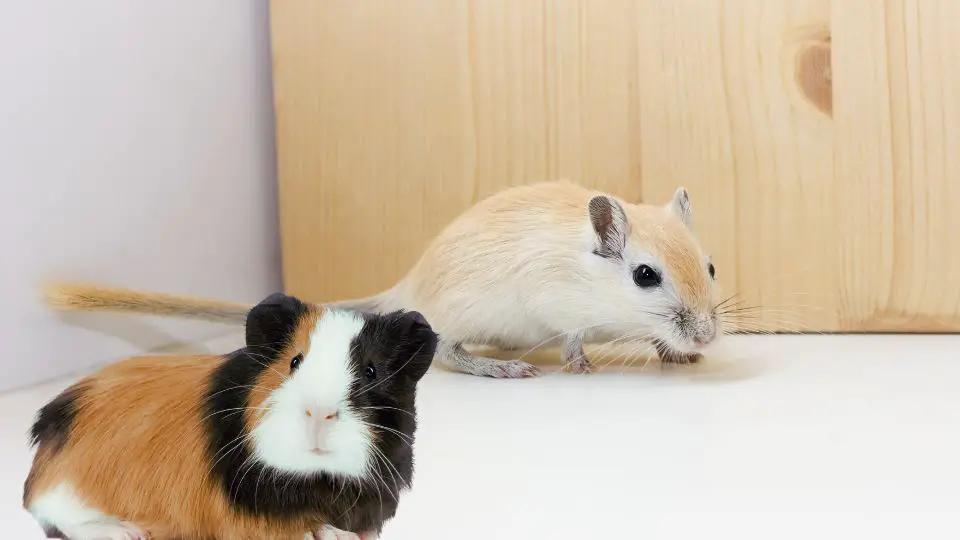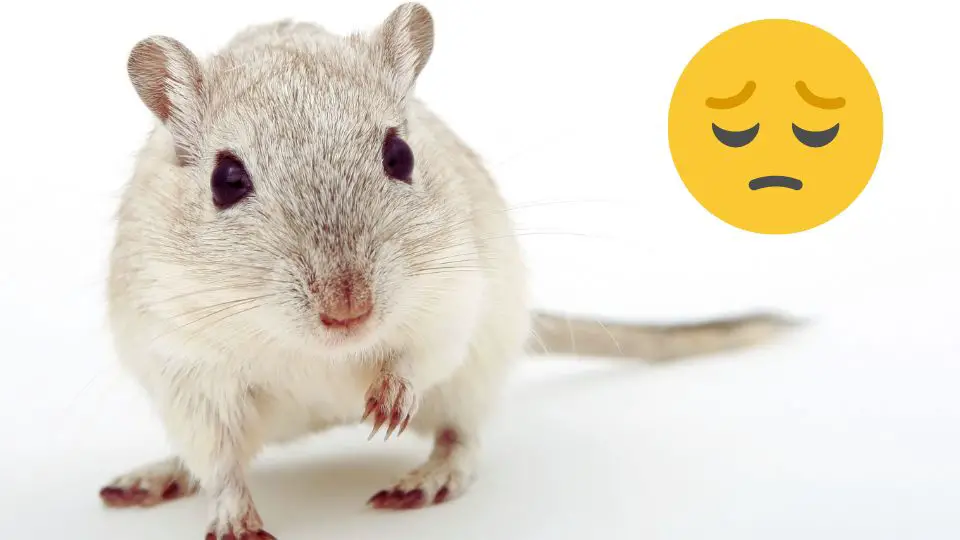As gerbils age, their needs change. Providing a comfortable living space for an elderly gerbil is crucial in ensuring they live a happy and healthy life in their golden years.
This includes appropriate cage size and setup, soft bedding and hiding spots, and visually stimulating and interesting environment.
In this article, we will explore the important aspects of creating a comfortable environment for an elderly gerbil, including cage setup, diet, exercise, and medical care. With the proper care, you can ensure that your elderly gerbil lives a comfortable and fulfilling life until the end.
Understanding Gerbil Aging
As gerbil owners, we must understand that our furry friends have a lifespan that is much shorter than ours. On average, gerbils live for 2–4 years, but with proper care and a healthy environment, they can live up to 5 years. However, there are certain factors that can affect their lifespan, such as genetics, diet, and living conditions.
As gerbils age, you may start to notice some physical and behavioral changes. Their fur may start to gray, and they may become less active and have a decreased appetite. They may also start to lose weight and have more difficulty grooming themselves.
One of the things you can do for your aging gerbil is to provide them with a comfortable and safe environment. This includes making sure they have a proper diet, exercise, and veterinary care. Make sure their living space is easy for them to navigate and that they have plenty of soft bedding for them to rest on.
As gerbils age, you must be extra gentle and patient with them. They may need more time to get used to new people or things, and they may not be as playful as they used to be. But with love and care, you can help your gerbil live a happy and comfortable life during their golden years.
Providing a Comfortable Living Space
When it comes to providing a comfortable living space for an elderly gerbil, there are a few key things to keep in mind. First and foremost, ensure that their cage is the appropriate size and setup for their age and mobility. As gerbils age, they may have a harder time climbing or navigating their cage, so make sure that their living space is easily accessible and not too large for them to navigate.
One way to make the cage more comfortable for an elderly gerbil is by providing soft bedding and hiding spots. Gerbils, like many small animals, enjoy having a cozy place to rest and hide, and this is especially important as they age and become less active. Consider adding a soft hammock or nest box for them to rest in, and provide hiding spots like a cardboard box or tunnel for them to explore.
Gerbils are naturally curious animals and they enjoy exploring their environment. Add new toys, tunnels or climbing structures to keep them mentally stimulated. You can also swap out the decorations in their cage from time to time to keep things fresh and interesting for them.
Here are a few tips for creating a comfortable living space for an elderly gerbil:
- Make sure the cage is the appropriate size and setup for their age and mobility
- Provide soft bedding and hiding spots for them to rest and hide
- Make sure their cage is easily accessible and not too large for them to navigate
- Add new toys, tunnels or climbing structures to keep them mentally stimulated
- Swap out the decorations in their cage from time to time to keep things fresh and interesting
Diet and Exercise
As gerbils age, their dietary and exercise needs may change. We must remind you to provide a balanced diet for an elderly gerbil to help support their overall health and well-being. This may include offering a variety of fresh fruits and vegetables, as well as a high-quality pellet diet that is specifically formulated for gerbils.
Exercise is also important for maintaining your gerbil’s health as they age. Gerbils are naturally active animals and enjoy running, climbing and exploring. As your gerbil gets older, they may not be as able to move around as much as they used to, so give your little pet appropriate exercise opportunities. This can include providing a large cage with plenty of space to run and climb, as well as offering interactive toys such as tunnels and balls.
Here is a list of things to encourage a healthy diet and exercise routine for your elderly gerbil:
- Provide a large cage with plenty of space to move around
- Offer interactive toys such as tunnels and balls
- Place food and treats in different areas of the cage to encourage foraging and exploration
- Provide a comfortable exercise wheel, gerbils can use it even if they are not able to run as fast as before
- Try to play with your gerbil for a short period every day
Medical Care
As your gerbil ages, you have to be extra mindful of its health and well-being. Regular veterinary check-ups are a must in order to ensure that any issues are caught early on and treated appropriately. Some common health issues that can occur in elderly gerbils include:
- Arthritis: Gerbils can develop arthritis as they age, which can make it difficult for them to move around comfortably.
- Tooth problems: Gerbils’ teeth continuously grow, and as they get older, it can be harder for them to wear them down properly. This can lead to overgrown teeth and dental issues.
- Kidney issues: Gerbils have a high risk of developing kidney problems as they age.
- Vision and hearing loss: These are also common issues that can occur as gerbils age.
To help manage the symptoms of aging and provide comfort for your elderly gerbil, there are a few things you can do:
- Provide soft bedding: Soft bedding can help cushion any joint pain and make it more comfortable for your gerbil to move around.
- Make sure your gerbil’s cage is easy to navigate: Remove any obstacles that could be difficult for your gerbil to navigate and keep the cage well-lit.
- Provide a balanced diet: Make sure your gerbil is getting all the necessary nutrients, vitamins, and minerals in their diet.
- Provide appropriate exercise opportunities: Provide appropriate exercise opportunities, such as a wheel or a small ball for your gerbil to play with.
- Encourage activity: Provide interactive toys and encourage your gerbil to stay active and engaged.
We must emphasize that every gerbil is different and that their needs may change as they age. Be sure to pay close attention to your gerbil’s behavior and consult with your veterinarian if you notice any changes. With proper care, your gerbil can live a happy, comfortable life well into their golden years.
Conclusion
In conclusion, taking care of an elderly gerbil requires special attention to ensure their health and well-being. We must be mindful of their dietary needs, provide appropriate exercise opportunities, and make sure they are receiving regular medical assessments from a veterinarian.
With proper care, your gerbil can enjoy a long and happy life in its golden years.







